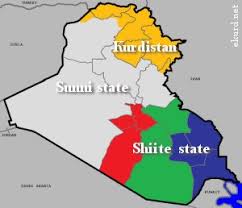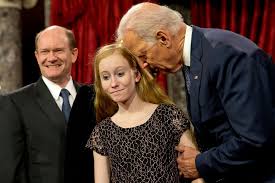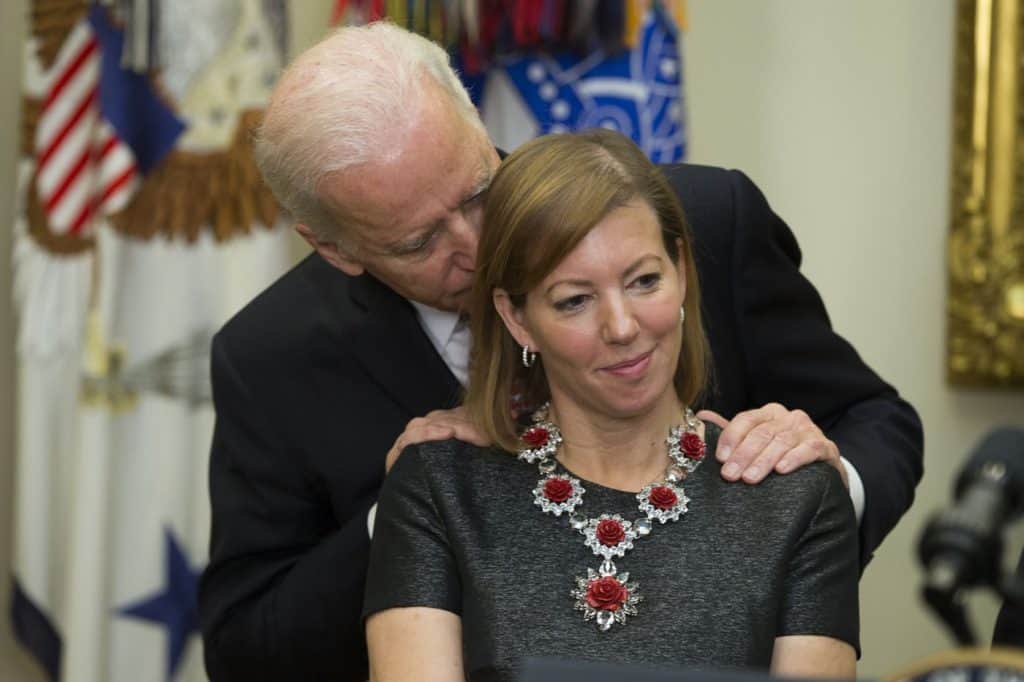by Richard Schulman

Shiite legislators may have second thoughts on following through on their non-binding vote to expel the US from Iraq. Not only would this seal Iranian domination over their country: Iraq could break up. The country could split into three pieces – a Kurdish north-east, a Sunni west, and a Shiite east and south. This would almost certainly be accompanied by civil war and ethnic cleansing, as happened in the Indian subcontinent after WWII when the British beat an over-hasty exit.
The fact that almost all the Kurdish and Sunni legislators boycotted the Iraqi parliamentary vote is a warning sign to the Shiites.
If Iraq splits three ways, with Iran controlling the east and south, the US would be foolish not to support the Kurdish state in the northeast as a bulwark against an Iranian takeover of all of Iraq. It would also be foolish not to work to steer the new Sunni state away from the dead-end of ISIS revival. Unopposed by the US, the new Sunni state would likely expand its reach westward into the Sunni areas encompassing much of Syria. This would have the virtue of further severing Iran’s Teheran-to-Beirut arc of terror.
Faced with these possibilities, there’s a good chance that Shiite legislators will think twice before following up on their initial angry impulses.
Iran policy
In the meanwhile, the US should offer the Iranian people an immediate reduction or end to the international boycott against Iran as soon as the regime either ceases its foreign adventures or disappears from the scene. Until that happens, the US should also be actively supporting the rights and perhaps national independence of Iran’s oppressed minorities — the Azerbaijanis, Kurds, Lurs, Mazandaranis and Gilakis, Arabs , Balochi, and Turkmens.
To objections that what is proposed above would embroil the US in new undesired Mideast conflicts, to the delight of the US’s more threatening strategic rival, China, it should be noted that a key aspect of Chinese foreign policy is the formation of a geopolitical “Heartland” belt of anti-US allies comprising China, Pakistan, Iran, Syria, Lebanon, Russia and perhaps Turkey. In thwarting Iran’s expansionism, one is thwarting the inroads of a key Chinese ally.
Nor is it a foregone conclusion that a major US combat involvement would be entailed if Iraq were to break up and the US were to support the new Kurdish and Sunni states rather than let them be crushed by Iran.
US interests in the Mideast
While it’s true that the US has made many, many mistakes regarding Mideast and especially Iraqi policy over the years – in both Republican and Democratic administrations — that’s a poor argument for now cutting and running, as the Democrats are proposing, joined by isolationists in the Republican Party. The US has two vital national interests in the Mideast. It must ensure that:
- No country dominates Mideast oil, which would put Europe and Japan in their power;
- No major Mideast power join with China to create a “Heartland” from the Pacific to the eastern Mediterranean. Such an alliance would dominate the Europe, Asia, and Africa – controlling the largest land mass on the planet and the repository of much its economic and military power.
The two Bush administrations
The first Bush
administration made the mistake of seizing defeat from the jaws of
victory by allowing Saddam’s Republican Guard to escape, allowing
his helicopters to gun down anti-Saddam Shiite insurrectionists that
the elder Bush had himself helped call into being, and above all, not
proceeding to Baghdad to overthrow Saddam. The second Gulf War
followed from that fatal error.
The prevailing media narrative that the Second Gulf War was a foolish, unnecessary “war of choice,” that it was all about weapons of mass destruction that weren’t there, that “Bush lied, people died,” is all just partisan nonsense. Once Bush Numero Uno left Saddam in power, there were good reasons for Bush Numero Dos having to return to Iraq to oust Saddam, this time for keeps. Saddam was massively violating UN sanctions, sponsoring anti-US terrorist groups throughout the world, and functioning as flag-bearer for all the anti-US radicals who were targeting and killing Americans wherever they could. Once Saddam was overthrown, the original plan was to immediately install a caretaker government of Iraqis. Instead Bush changed his mind and appointed an American proconsul, Paul Bremer, a Henry Kissinger understudy, to rule over Iraqis. Bremer dissolved the Iraqi army – the one unifying institution the country had – and in so doing created the Baath insurrection led by colonels and generals that Bremer had made unemployed. Bremer delayed elections unnecessarily and brought the UN in to foist on Iraq the present wretched Islamist constitution, whose proportional, party-based voting system ensures legislative paralysis and the permanency of opposing sectarian parties rather than cross-cutting alliances between different religious and ethnic groups.
In his final two years, Bush Two rescued the country from all-out civil war and chaos by means of the Surge, widely denounced by Democrats.
Obama pursues lovey-dovey outreach to US enemy
His successor, President Obama, worked to make Iran, a US enemy, the major power in the Middle East. When the Green Revolution broke out in Iran in June 2009 against the mullahs and their hand-picked, vote-fraud-installed president, Mahmoud Ahmadinejad, Obama worked hard to destroy the Green movement so that he could have a peace treaty with the mullahs. He reinforced that despicable accomplishment by prematurely withdrawing US troops from Iraq — against all military advice — to give himself a 2012 election boost. That enabled ISIS to take over half of Iraq, forcing the country to call in the Iranians for military assistance. That was the beginning of Iran’s present huge influence in Iraq.
Despite this worrying development, Obama then gave Iran an extraordinary boost with the Joint Comprehensive Plan of Action (JCPOA), a treaty favorable to Iran that unconstitutionally bypassed the US Senate in preference for the UN. It opened the door to Iran spreading its influence and anti-US activities over half the Mideast.
Although President Trump erred in allowing Iranian-backed Iraqi militia to crush the Iraqi Kurds’ independence vote and then deserted the US’s Syrian Kurd allies as a favor to Turkey’s Erdogan, Trump moved later to limit the latter mistake. Then, after going out of his way not to provoke Iran militarily – even after Iranian attacks on shipping, Saudi oil production, a US drone in international waters, the murder of a US contractor, and the leading of Iranian-backed mobs against the US embassy in Baghdad, the US president correctly decided to send a strong and long overdue message to Iran that its days of trifling with the US were over. The dramatic rub-out of Iran’s #1 terrorist commander Qasem Soleimani was that message.
Cue, astonishingly — instead of affirmations of patriotic support – denunciations of the president by the Democrats, their press, and all their presidential candidates. “Mature,” “experienced” former vice-president Biden was right in there with the youngsters:
“President Trump just tossed a stick of dynamite into a tinderbox,” after a U.S. strike killed Iranian military commander Qassem Soleimani late Thursday. “The Administration’s statement says that its goal is to deter future attacks by Iran, but this action will almost certainly have the opposite effect,” Biden said in a statement.
The Daily Beast, Jan. 2-3, 2020
Clearly not a single Democratic candidate understands that suffering repeated insults without responding just invites more and worse attacks. Clearly not a single Democratic candidate understands the importance of deterrence in defending the US. Clearly not a single candidate one of their candidates is fit to serve as commander-in-chief of US armed forces. One would even hesitate to allow Joe Biden to command a Brownie troop – for fear he might fondle their necks or hair.



Leave a Reply